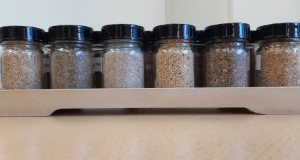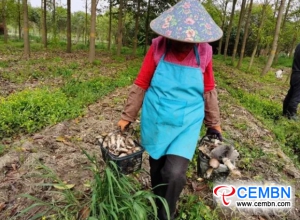Supplement, the unknown ingredient?
If a consultant is visiting a farm there are always many things to discuss in detail.
Shall we give more or less water and are we able to water over the mushrooms?
Do we need a slower or faster fructification?
Is the amount of pins sufficient or do we need more and how do we then get a decent stagger?
Even discussions about compost although many growers do not really know the details. But they know about structure, moisture and smell. Because this is what they discuss at filling.
The same about casing soil. Is it heavy this time or just fine? Wet or dry?
But talking about supplement one finds out that most of the growers have absolutely no idea how it works, what it really is and the choices they can make. Generally the price is the main buying point.
And this is strange to me. Because compost and casing are always changing during the year. This is mainly due to the seasonal effect on the raw materials. Straw is maturing in the storage, chicken manure will change in nitrogen level and peat is changing moisture depending on the season of the year. Manufacturing companies will react to that but smaller changes are inevitable.
To keep production at the same level or to enhance it, the supplement however can be changed to your liking. Most of the growers only know that there is a slow or normal release product. But it is possible to customise the supplement to the situation of that moment. Not just slow or fast but even pinpointed to a certain phase of the growing. To give an example: one of the farms I work on now wanted more activity in second flushes and a longer shelflife. In cooperation with the compost supplier and the supplement supplier they have now “composed” a supplement that can do that. Be aware though that it also needs adapting of the growing. You are putting more proteins into the compost so the activity changes too. This means that also the watering and the picking have to change.
But this way many combinations are possible.
There are different raw materials to mix and several processes to make the release time fitting your schedule.
A few remarks though have to be made.
It only works well in cooperation with the compost supplier. The ingredients of the supplement have to be an addition to the nutrients in the compost. So it has to fit the analyses of the compost.
The best way to use it if it can be mixed in at the compost yard. And this is only profitable with bigger quantities of compost. Mixing it in at filling is not as efficient as on the compost yard.
Do not just look at protein levels. Because some proteins are not available to the mushrooms and will still be in the compost at the moment of emptying the room.
So look at effective protein. This often is a matter of price. Good proteins come with a price.
And remember: good supplement makes good compost better. But good supplement makes bad compost worse.
Now, it is the ideal marketing time of Stropharia rugosoannulata in Shanghai Gulinyuan Professional Cooperative, farmers are engaged with mushroom picking, sorting and packing.
”In 2019, we cultivated Stropharia rugosoannulata in 150 mu of area, now, mushrooms are in peak picking period, daily picking volume comes to 1000 kg or so,” introduces person in charge of Gulinyuan Cooperative warmly, going on that during the cultivation process of Stropharia rugosoannulata, the cooperative makes full use of agricultural and forestry residues, and seizes rice straws as raw materials. By doing so, decomposed straws could be returned to the field to improve the soil and enhance soil organic matter after mushroom cultivation.























